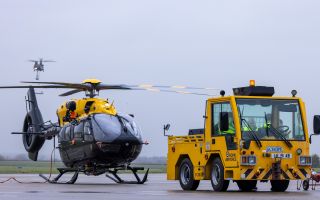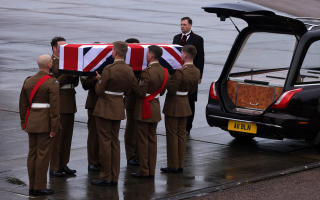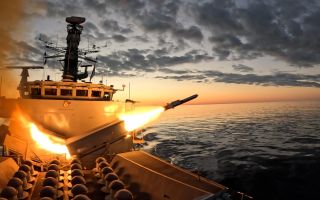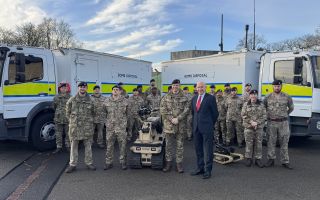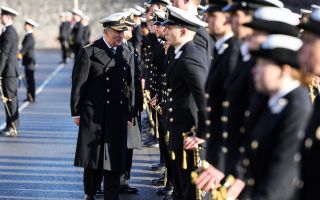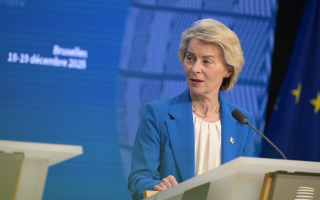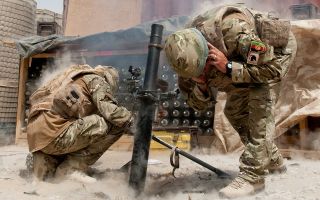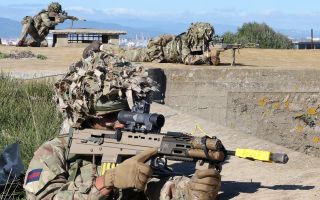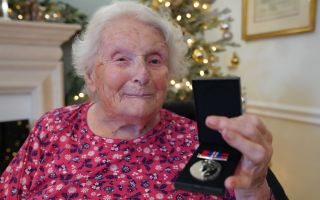Royal Marines mobilised within hours to fly into the 'extraordinary uncertainty' of Sudan
Royal Marines have recalled how they deployed to assist with the complex large-scale evacuation of British nationals from Sudan within hours of getting the call.
Images of the military operation in April to evacuate the British nationals from Sudan came as a significant escalation in violence and threats in the country made headlines across the UK.
The pictures showed humanity in what was a desperate situation – memories forever engrained in those trying to get out of Sudan.
Forces News has spoken to the military personnel from the UK Commando Force who took part in the non-combatant evacuation operation (NEO).
A member of 42 Commando remembered where they were when they first got to call to go and not quite knowing what would happen.
Corporal O'Neill, K Company, 42 Commando Royal Marines said: "We were working with a partner force as a defence operation and we got the phone call at 1 o'clock in the morning, at which point we were recalled back to 42 Commando."
As part of the Fleet Contingent Troop (FCT), he added that they are "always held at a high readiness" and were able to get their kit and equipment ready very quickly to link up with 40 Commando.
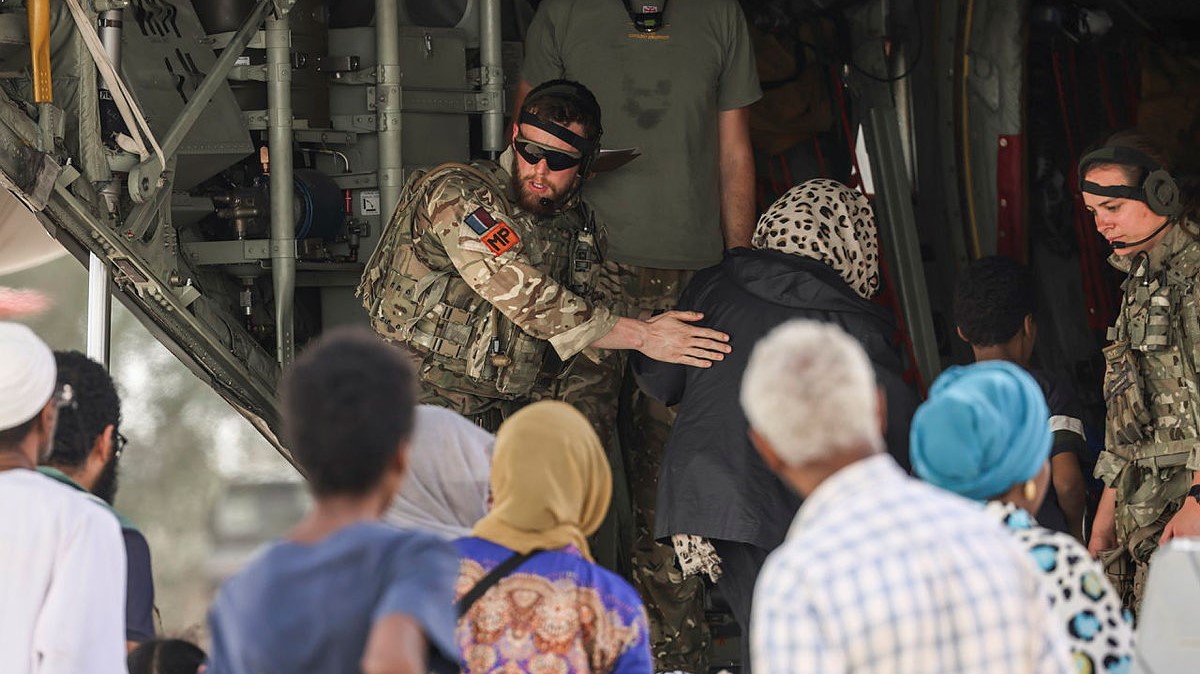
More than two months on from the evacuation mission, fighting between Sudan's armed forces and the paramilitary Rapid Support Forces continues.
It is still an uncertain situation and the ceasefire that was in place for the UK NEO to begin was uncertain too.
'An operation about people'
40 Commando ran the rapid extraction task force, trying to get as close as they could to the people that needed help.
They initially looked at locations as close to the capital Khartoum as they possibly could because that was where the maximum concentration of people who needed assistance was.
Wadi Seidna Airport, just north of Khartoum, was where they landed and began the operation.
"It was ultimately an operation about people," Lieutenant Colonel Oliver Denning, Commanding Officer 40 Commando Royal Marines, told Forces News.
"We had people who went forward to try and help as many people as they possibly could, but also it was about understanding, with some real compassion, that those people had been in a real difficult situation for over a week and they just needed help."
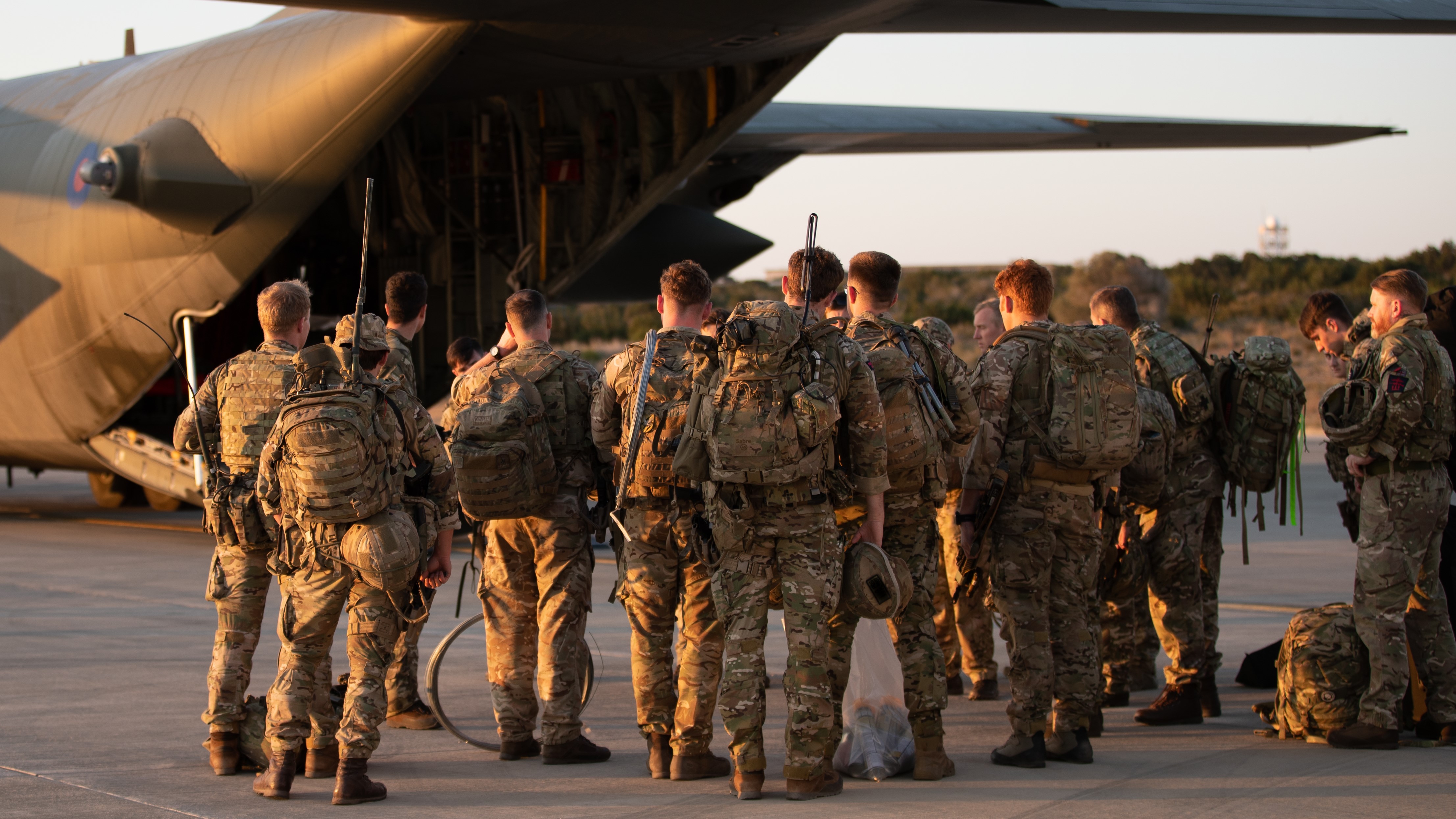
An evacuation handling centre was established where personnel worked tirelessly to get as many British passport holders onto military flights.
Corporal O'Neill explained what it was like for those on the ground.
"We saw a wide variety of people coming through, and it was hard to see sometimes, you saw very young children, I've seen people get into a lot of distress, very desperate, and you needed to be mentally prepared for that," he said.
"It's not just a case of going in, in an aggressive format, you need to think about how you interact with them and understand their viewpoint, especially when things were getting a little bit tense if they were having to stay there a little bit longer, the flights were a little bit later, understand their stress in all of it."
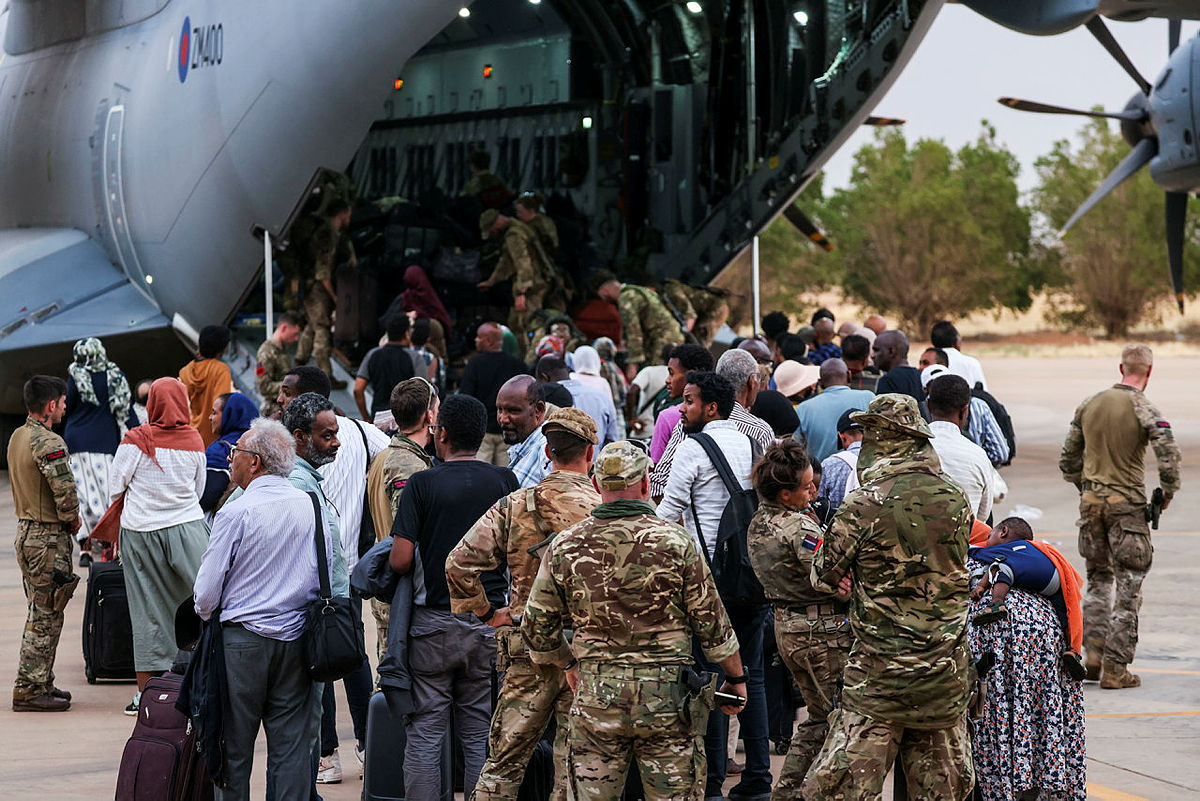
As part of the UK Commando Force, it's Commando Logistic Regiment which provides all the logistical support to all these operations, whether it is kit or medical assistance.
Surgeon Lieutenant Lucy Wallett, Medical Squadron – General Duties Medical Officer, Commando Logistic Regiment, discussed what it was like in Sudan.
"When we were in Sudan, we were out on the airfield so we used the air hangar to set up our kit and equipment," she said.
'You had to be flexible'
Barring the tents, they took all necessary tools from their base to Sudan and set up inside one of the workshops in the air hangar.
The surgeon described how they saw more than 200 patients, with "all kinds of things, the most common thing by far was heat illness, heat stroke".
She added: "We saw a lot of children, pregnant ladies which, again, is more unusual for military medicine."
"Members of our team all had different skill sets and we all, kind of, came together to provide as best medical support as we could."
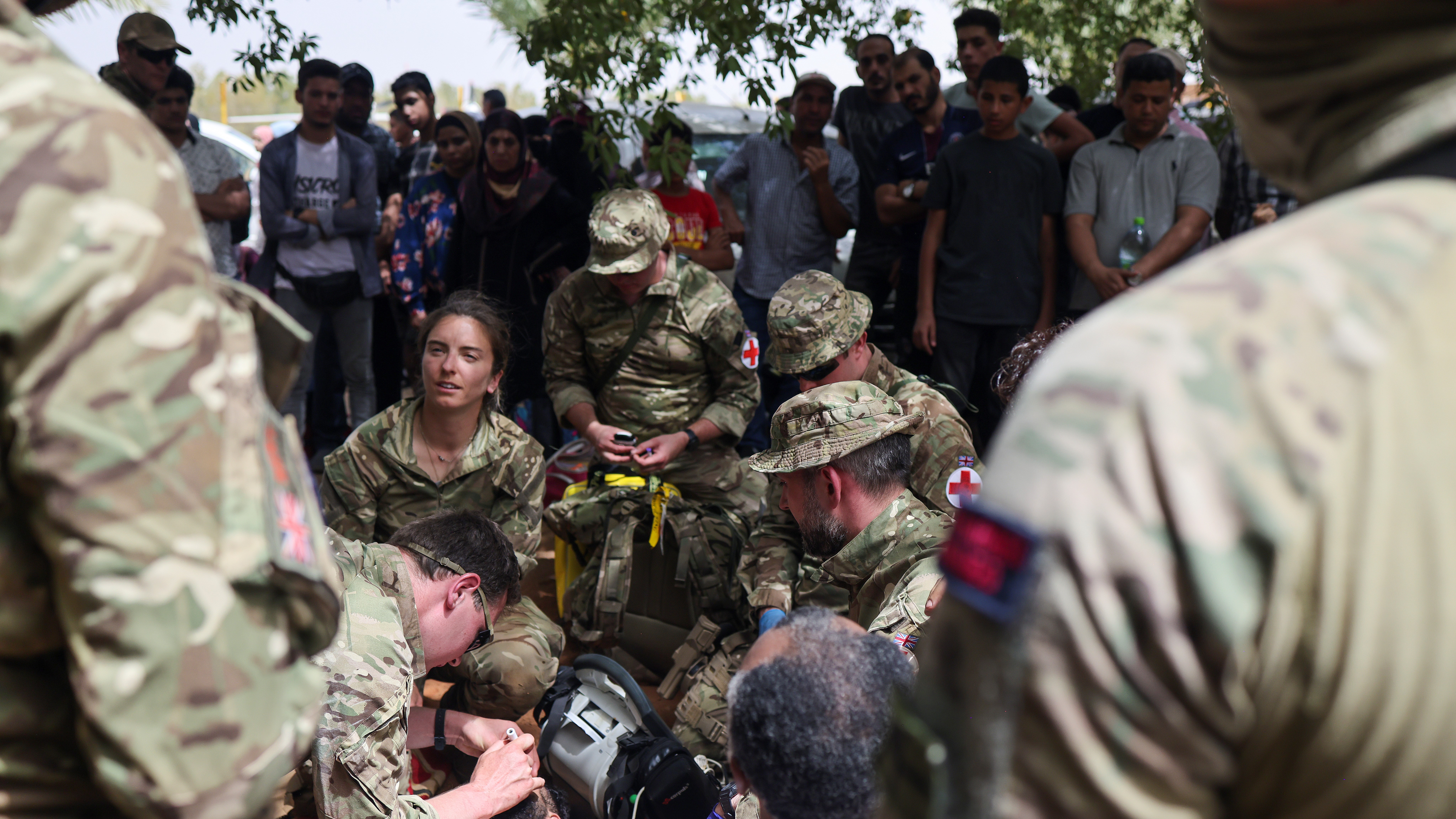
Surgeon Lieutenant Wallett also recalled how the natural surroundings were quite unforgiving and how her team adapting was crucial.
"It was in quite a desperate situation, so you had to be flexible... and be ready to adapt where needed. There were multiple occasions where all the lights and all the power would go out, which is obviously a bit tricky when you're treating patients."
She added: "At one point, the ceiling caved in so, again, it was quite tricky, so it is about being adaptive... knowing your team and working together."
Versatility was 'crucial'
In this type of fast-moving situation being versatile was vital.
"Being able to move, and respond at very quick order, accept that you are not going to know everything right away, but work it out as you go along," Major Bernie Manning, OC landing force support squadron, Commando Logistic Regiment, told Forces News.
He added: "Whatever the problem is in front of you, find the solution quickly and make sure you can support the men and women of the Commando Force and the people, the civilians."
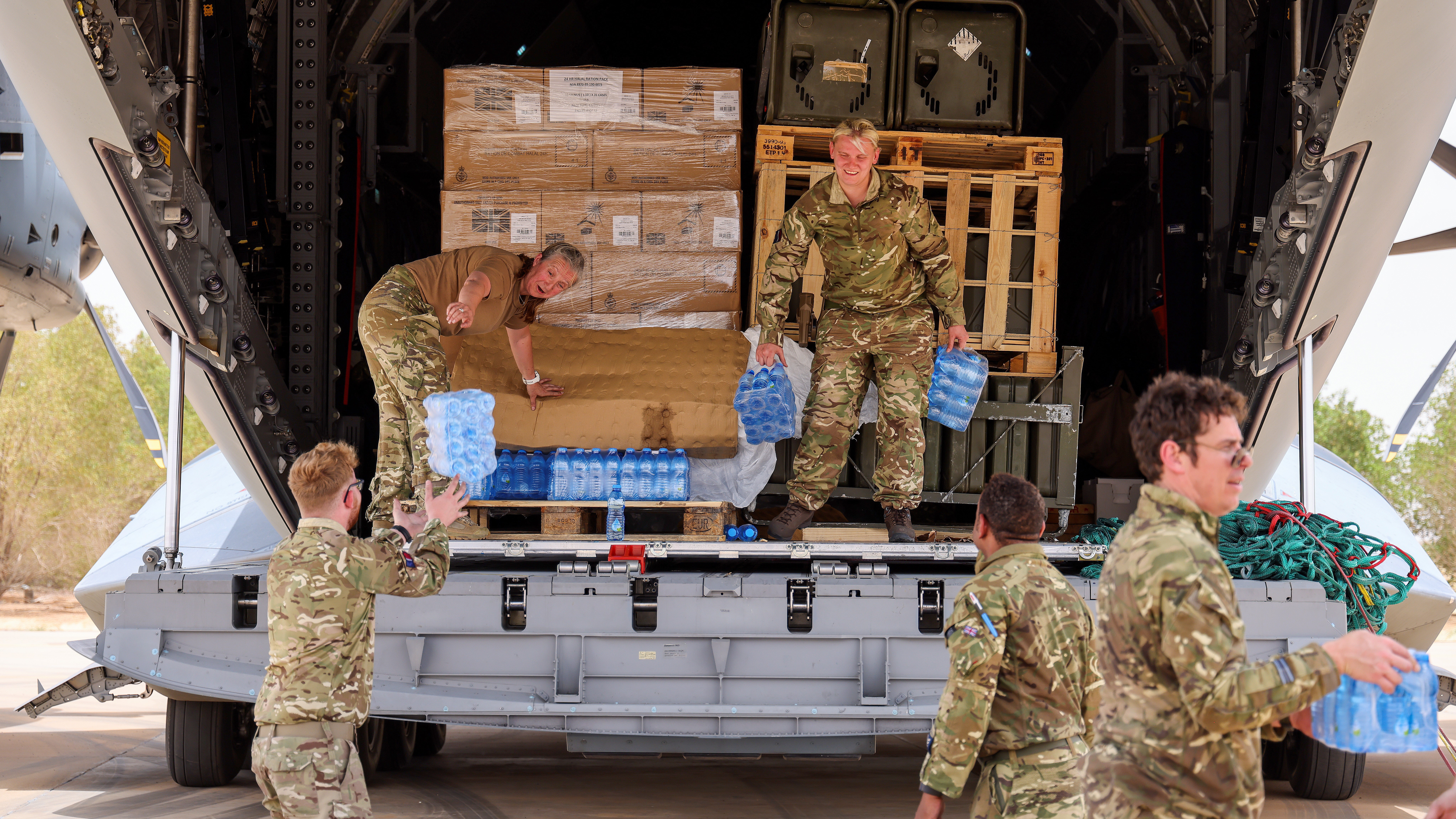
Maj Manning added: "In terms of what we deployed, everything from water rations, based here in the UK, and equipment we'd already had prepositioned in Cyprus, all the way from those basic life support materials all the way through to specific and specialist items that were needed forward, things like wheelchairs, baby food, women's sanitary products, everything that was needed forward.
"Because a lot of that hadn't necessarily been anticipated and wasn't necessarily available, it really meant that at really short notice we needed to find that stuff, get it together, and move it forward, just so we could be there just in time for the people that needed it."
There was also assistance and evacuations from Port Sudan and in total 2,450 people from more than 20 countries were evacuated by the British military.
All three services of the UK Armed Forces were involved in the evacuation mission.
Gave 'everything they could'
Lt Col Denning said: "We train our people to be able to deal with that level of uncertainty.
"What was most impressive from my perspective was watching very, very junior people fly into a situation of extraordinary uncertainty and immediately use compassion to support some people who'd been through a really, really difficult time and give everything they could in support of them."
He added: "It was 48° on the ground, we flew in with minimal support, but everything we did have we orientated that towards those who needed our support on the ground.
"So, all of that meant that we were extremely busy early, we managed to get people on the very first plane that we flew in with, and we managed to get a really high drum beat of evacuations going as quickly as we could, as soon as we could, for as long as we were able to do so."
Vice Chief of the Defence Staff, Royal Marines General Gwyn Jenkins praised the "hugely important" effort shown during the Sudan evacuation mission.
Talking to Forces News, he lauded the "amazing capability" displayed by 40 Commando, who "stood by at almost no notice to come to the rescue of British citizens around the world".
UK Commando Force trains for and prepares for all kinds of eventualities and situations.
Generally, these troops are ready to go anywhere in the world with less than 48 hours' notice and, in the case of Sudan, just a few hours' notice to get to people in their hour of need.

